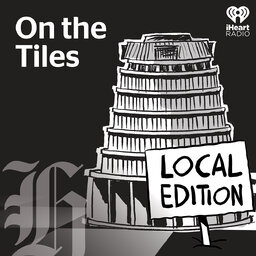Orr to Goff, Marmite to reshuffles: The week that was in politics
In the first political panel catchup for the year, Thomas is joined by Newstalk ZB Political Editor Jason Walls and NZ Herald Wellington Business Editor Jenee Tibshraeny to discuss a hectic period in local politics - ranging from the resignation of Reserve Bank Governor Adrian Orr, the firing of UK High Commissioner Phil Goff, the latest comments by Christopher Luxon, and Labour's reshuffle.
In 1 playlist(s)
On the Tiles
Each Friday, NZ Herald Deputy Political Editor Thomas Coughlan covers off the biggest political news…Social links
Follow podcast
Recent clips

Labour's David Parker on the state of foreign affairs
54:26

Sir Bill English on what's needed to fix the health system
41:14

Local body elections: Who’s running for the mayoralty in Auckland, Wellington and Christchurch?
33:04
 On the Tiles
On the Tiles